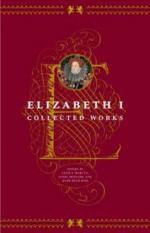|
This section contains 722 words (approx. 2 pages at 400 words per page) |

|
Summary
The speaker begins by lamenting that the fear of future conflict prevents her from enjoying her present happiness. She is aware of frequent lies and her subjects' waning faith in her, which she argues "should not be" if people behaved rationally (4). She observes that her people are so unused to happiness that a time of peace has led to uprisings, which she promises will soon be defeated. She argues that virtuous rule will ultimately destroy all rebellion. Neither foreign invaders nor internal rebels can hope to find a place in this happy kingdom. The poem concludes with the speaker imagining her sword cutting off the "tops," or heads, of those that plan to destabilize the kingdom (16).
Analysis
This poem, like all of Queen Elizabeth I’s poetic output, is most often read as autobiographical. Elizabeth’s uniquely important historical position, juxtaposed with the fact...
(read more from the Lines 1 – 16 Summary)
|
This section contains 722 words (approx. 2 pages at 400 words per page) |

|




